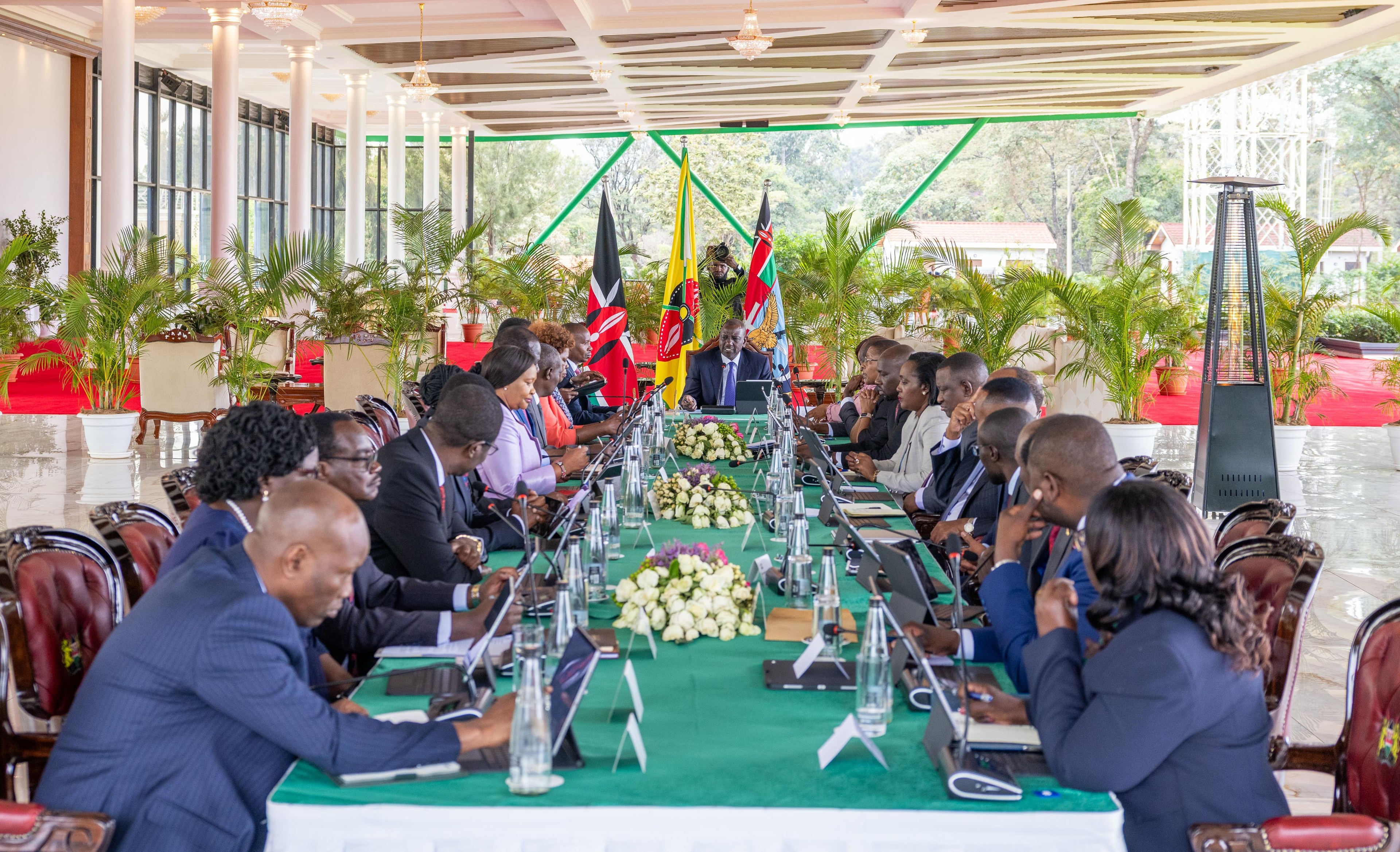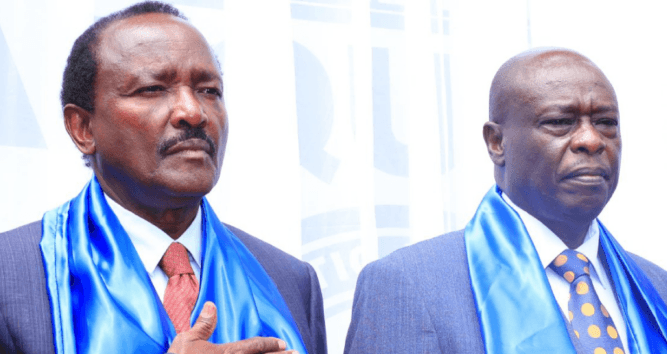Probably not one to brag but the digital media house, Viral Tea Ke, was the first in the country to notice the arrival of popular Indian actress Priyanka Chopra in Kenya.
For those not in the know, she is the wife of American singer Nick Jonas of the Jonas Brothers band. Chopra was in Northern Kenya this week to meet children suffering from acute malnutrition as a result of the current drought.
In an interview on NTV, the actress raised concerns regarding the plight of many families in drought-stricken areas.
"This kind of human suffering, especially when it comes to children and can be prevented, should not exist. Children dying of starvation and having no access to food or water. All of this is preventable as long as they have access to these vital resources," she said.
"This drought is due to a climate crisis that the poorest nations and communities are not really responsible for. The carbon emissions that happen are predominantly done by developed countries but those affected the most are those who contribute the least.”
Chopra is the United Nations International Children's Emergency Fund goodwill ambassador.
Despite having played no role whatsoever in environmental change, children remain the most vulnerable to its adverse effects. The current drought in the Horn of Africa has, for example, left 10 million children food insecure, at risk of severe malnutrition and vulnerable to water-borne diseases.
Additionally, 15 million children in the Horn of Africa have been pushed out of school, and according to Unicef, an additional 3.3 million children are at risk of dropping out of school due to the ongoing drought.
The Children’s Climate Risk Index asserts that 1 billion children globally live on the front lines of the climate crisis, while nearly every child around the world is at risk from at least one climate and environmental hazard. The index goes on to state that not a single country is doing enough to safeguard the health, environment and future of its children.
These are not mere statistics; they represent the future and the people of tomorrow. Climate change, environmental degradation, poverty, and inequality pose a significant threat to the health, education, and future of children. People affected by climate change are no longer some imagined future generation.
The world is failing to provide children with a healthy life and a climate fit for their future and this is what climate injustice looks like. As the world convenes in Egypt for CoP27 from Sunday, November 6 to Friday, November 18, we are presented with yet another opportunity to turn things around.
Russia’s war in Ukraine serves as a brutal reminder that overreliance on fossil fuels is not sustainable and as energy seemingly becomes the new frontier for intense geopolitical competition among global powers, we are presented with an opportunity to tap into clean energy.
Not only will it reduce the amount of carbon dumped into the atmosphere, but renewables also come with a sense of energy security and freedom as no single actor can use them as a trump card to score geopolitical points.
Commitments to international climate finance need to be met with increased investments in climate adaptation and mitigation to protect children and the most vulnerable from the adverse effects of environmental change by availing basic human needs such as water, sanitation, healthcare and education.
Children and young people also need to be equipped with climate education and green skills to fight and adapt to climate change. They also need to actively take part in climate change conversations at the national, regional, and international levels, including CoP27.
They need to participate in green initiatives such as planting trees, recycling initiatives, taking part in social media campaigns raising awareness of climate and environmental change, and putting pressure on governments to enact environmentally friendly policies.
Recently, President Ruto made a promise to have Kenyans plant 5 billion trees in five years, and despite the questions raised thereafter over the feasibility of that promise (we have heard politicians make such promises that have never been kept), that could be one way to mitigate the effects of climate change.
Earth is on a red line now and the only way out of it is to act.
Chege is founder and managing editor at Viral Tea Ke, Nairobi; Mbugua is International Studies student at The University of Nairobi











![[PHOTOS] Ruto present as NIS boss Noordin Haji's son weds](/_next/image?url=https%3A%2F%2Fcdn.radioafrica.digital%2Fimage%2F2025%2F11%2Ff8833a6a-7b6b-4e15-b378-8624f16917f0.jpg&w=3840&q=100)

